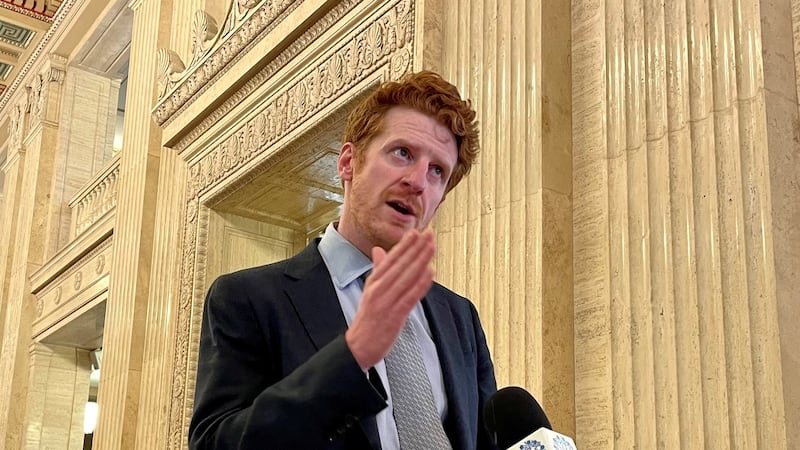A STALLED new suicide strategy for Northern Ireland is being published today with a target to substantially reduce deaths over the next five years.
There has been severe criticism of the delay to the 'Protect Life 2' document following the collapse of Stormont and the need for ministerial 'sign-off' - despite the north having the highest suicide rate in the UK.
However, the most senior civil servant at the Department of Health, Permanent Secretary Richard Pengelly, has now announced the new strategy and stressed that the emphasis is on preventing self-harm and deaths.
An additional £1.35 million has been allocated to the programme through 'transformation' budgetry funds along with the £8.7m given to suicide prevention each year.
Mr Pengelly described suicide levels as "unacceptably high" and said the aim is to have a "substantial" 10 per cent reduction in deaths by 2024.
Between 2000 and 2017, a total of 4,476 deaths were registered as suicide in the north.
Mr Pengelly said: "Suicide is preventable and not inevitable, yet almost every day in Northern Ireland a person takes their own life... How we address this is a challenge for all in government and society. I am pleased that permanent secretaries across the NI civil service have indicated their support for this strategy.
"One of the aims is to deliver suicide prevention services and support, with a particular focus on deprived areas where self-harm rates are highest and suicide rates are over 3.5 times higher than those in the least deprived areas."
Last September, Dr Adrian Mairs from the Public Health Agency appeared before the Northern Ireland Affairs Committee at Westminster and criticised the absence of a strategy, which he said could potentially make a difference.
At the time, the north's Chief Medical Officer (CMO) Dr Michael McBride insisted it was "misleading" to suggest services were being compromised.
Five months ago, fresh concerns were again raised about the impact of delays in accessing mental health services for those at risk of suicide, with a letter sent to the CMO by Belfast councillor Paul McCusker, who is also a healthcare professional.
Mr McCusker said his north Belfast constituency office was getting 20 calls on a weekly basis from those "struggling and who are experiencing delays in getting help".
Dr McBride welcomed the new strategy, which comes 13 years after the launch of the original 'Protect Life', and said it was already making a "positive difference".
"The Multi Agency Triage Team is working in partnership with the health and social care sector, PSNI and the Northern Ireland Ambulance Service to provide on the spot mental health support to people who are in distress. This programme has recently been expanded and is now available in the Belfast and South Eastern HSC trust areas.
"In addition, a 'Towards Zero Suicide' initiative has recently been introduced in all trusts and has a focus on patient safety in adult mental health. Similar initiatives in other parts of the world have seen significant decreases in suicide rates.
“The toll suicide takes is not just measured in lives lost and anguish for families and communities. There is also an estimated wider societal cost of £1.55 million for each life lost. Right across government we must continue to prioritise investment in prevention."
The publication was launched to coincide with World Suicide Prevention Day.
"It is my expectation that this strategy will bring hope, support and clear direction for all involved in suicide prevention in Northern Ireland," Mr Pengelly said.



